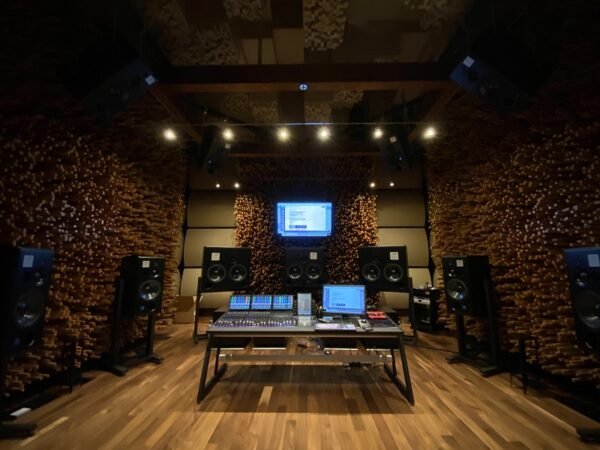
A Star So Bright! The Tragic Death of Avicii at the Young Age of 28

Avicii’s death at the young age of 28 has come as a shock to the world and his adoring fans. Today, we can’t keep the tears from falling down as we look back on the pressures that came with his career and fast-paced lifestyle which made him burnt out both physcially and spiritually. We can see some tragic and haunting images of a tormented artist who struggled to stay happy in the past few years.
In the 2017 Netflix documentary Avicii: True Stories, the Swedish DJ said he knew he was going to die if he continued performing.
“I have told them this. I won’t be able to play anymore. I have said, like, ‘I’m going to die.’ I have said it so many times,” he reportedly said in the documentary, which dropped in October. “And so I don’t want to hear that I should entertain the thought of doing another gig.”
He then detailed the lack of support he felt when he did announce his retirement:
“I have been very open with everyone I work with, and everyone who knows me. Everyone knows that I’ve had anxiety and that I have tried. I did not expect that people would try to pressure me into doing more gigs. They have seen how ill I have felt by doing it, but I had a lot of push-back when I wanted to stop doing gigs.”

The Swedish producer and DJ who’s real name is Tim Bergling died on April 20th near Muscat, Oman, and police have stated that there is no criminal suspicion or evidence of foul play in his passing.

The young star, who came across as a warm, loving and grounded person who loved his fans but shied away from the limelight as the fame made him nervous, rose to worldwide fame in 2011 with his breakthrough single Levels, and his first studio album, True was released in 2013 when it reached the top ten in more than fifteen countries across the globe. It featured the single Wake Me Up, which was a smash hit across Europe and reached number four in the American charts.

In a 2013 interview he lifted the curtain on his passion for music, but also his discomfort around his success and the pressures of performing on stage.
‘I love DJing, I do,” he said. ‘I love everything that comes with it; it’s fun and it’s kind of glamorous’
He also opened up about his negative relationship with alcohol, confessing that he lived on champagne, Bloody Marys and airport food.
‘You are travelling around, you live in a suitcase’ he told GQ magazine ‘you get to this place, there’s free alcohol everywhere—it’s sort of weird if you don’t drink,’
He also admitted that he relied on alcohol in his early career to help with pre-show nerves. ‘I just got into a habit, because you rely on that encouragement and self-confidence you get from alcohol, and then you get dependent on it. I probably drink more now than I should, but I have a pace. I never drink two days in a row.’
In 2016 though, he wrote a heartfelt letter to his fans explaining that he could no longer continue to tour after suffering from multiple health issues including pancreatitis from drinking alcohol. Tim had been previously hospitalised in 2012 with acute pancreatitis caused by excessive alcohol use and later underwent surgery and had both his appendix and gallbladder removed.
On his website he wrote:
‘Two weeks ago, I took the time to drive across the U.S. with my friends and team, to just look and see and think about things in a new way.’
‘It really helped me realise that I needed to make the change that I’d been struggling with for a while’

There are now questions being asked online about the music industry in general, and why artists are being forced to their physical and mental limits all in the name of touring and making money.
At his peak Bergling was pulling in around $20 milllion a year, but the with relentless schedule, addiction and health implications was it really worth it?
In recent days the family of the much-loved musician have spoken out, to comment on his life and the worldwide reaction to his passing.
‘We would like to thank you for the support and the loving words about our son and brother,’ the statement reads.
‘We are so grateful for everyone who loved Tim’s music and have precious memories of his songs. Thank you for all the initiatives taken to honour Tim, with public gatherings, church bells ringing out his music, tributes at Coachella and moments of silence around the world.’
The statement goes on to show appreciation, saying that they are ‘grateful for the privacy during this difficult time.’
On Friday, the late DJ’s publicist Diana Baron issued a statement confirming his death, asking for privacy and confirming that no further statements would be given.

News broke that the Swedish DJ tragically committed suicide.
Tim Bergling’s family told how he left a suicide note when he was found dead in Oman aged 28.
Translated from Swedish, the statement issued to Variety read: “Our beloved Tim was a seeker, a fragile artistic soul searching for answers to existential questions.
“An over-achieving perfectionist who travelled and worked hard at a pace that led to extreme stress.
“When he stopped touring, he wanted to find a balance in life to be happy and be able to do what he loved most – music.
“He really struggled with thoughts about Meaning, Life, Happiness. He could not go on any longer.”
They added: “He wanted to find peace. Tim was not made for the business machine he found himself in; he was a sensitive guy who loved his fans but shunned the spotlight.
“Tim, you will forever be loved and sadly missed. The person you were and your music will keep your memory alive. ‘We love you, Your family.’

A star so bright! We are still in shock over here at YCB after hearing about the heartbreaking news. Our thoughts and prayers are with Tim and his family. Rest in Paradise, Tim Bergling, Avicii. Your music will continue to live on and through it, so will you. R.I.P.













































